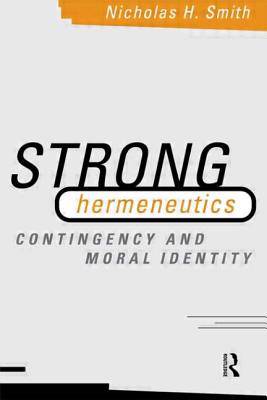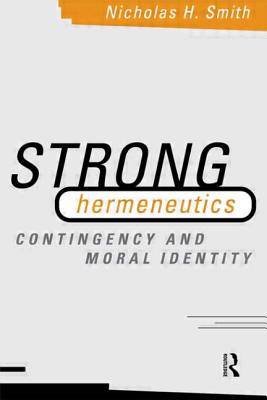
- Afhalen na 1 uur in een winkel met voorraad
- Gratis thuislevering in België vanaf € 30
- Ruim aanbod met 7 miljoen producten
- Afhalen na 1 uur in een winkel met voorraad
- Gratis thuislevering in België vanaf € 30
- Ruim aanbod met 7 miljoen producten
Omschrijving
Recent years have seen a resurgence of interest in ethics, particularly in the approaches of deconstruction and hermeneutics. At the same time, questions of identity have risen to prominence in philosophy and beyond into cultural studies and literature.
Strong Hermeneutics is a clear and accessible investigation of both the enlightenment and postmodern or 'weak' approaches to contemporary discussions of ethics. The weak view, which can be traced back to Nietzche and seen in the recent work of Rorty and Lyotard, is sceptical of any universal principles in ethics. The enlightenment view, starting with Kant and more recently seen in the work of Habermas, views identity as subject to universal but formal moral constraints, the renewing of which is the proper task of ethics.
Nicholas Smith argues that neither of these views can provide a proper framework for ethics. He puts forward a third position - a strong hermeneutics - drawing on the work of Hans-Georg Gadamer, Paul Ricoeur and Charles Taylor. Strong Hermeneutics presents a defence of this view, compares it with the realism and anti-realism debate in philosophy, and demonstrates its relevance to contemporary issues, particularly ecological responsibility.
Specificaties
Betrokkenen
- Auteur(s):
- Uitgeverij:
Inhoud
- Aantal bladzijden:
- 208
- Taal:
- Engels
Eigenschappen
- Productcode (EAN):
- 9780415164320
- Verschijningsdatum:
- 28/08/1997
- Uitvoering:
- Paperback
- Formaat:
- Trade paperback (VS)
- Afmetingen:
- 157 mm x 234 mm
- Gewicht:
- 331 g

Alleen bij Standaard Boekhandel
Beoordelingen
We publiceren alleen reviews die voldoen aan de voorwaarden voor reviews. Bekijk onze voorwaarden voor reviews.











